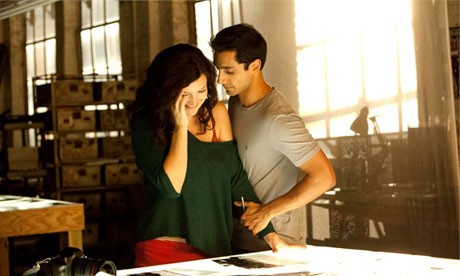The Toronto Film Festival opens tonight. Over the next 10 days there will be a couple of hundred movies to be seen. This is one festival where you can make a decision to see films by women and see plenty of films. There are some extraordinarily high profile female directors opening films at the festival.
The one area where there are hardly any women directors represented is the “masters” section. The directros below some of them are on their second film and some have made a bunch all asre masters to me. I’ve seen their previous films and they are stellar. I look forward to catching ALL the films by the women listed below.
The directors below were all asked to answer the same questions:
1- Give us a one sentence description of your film.
2- What is different about this film from your other films?
3- Toronto is featuring so many great women directors, yet women directors still are stuck down in the single digits in feature film making (the numbers are better in docs.) Why do you think it is so difficult for these numbers to rise and talk about any ideas you might have about how this could change.
Check out the answers from the female “masters”: Sally Potter, Cate Shortland, Ava Duvernay, Amy Berg, Shari Springer Berman, Liz Garbus,Ruba Nadda, Marina Zenovich, and Mira Nair.
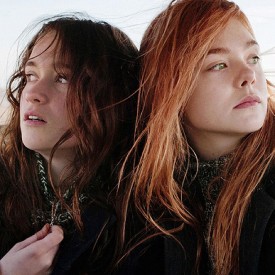
Sally Potter is an acclaimed writer and director. She directed her first feature The Gold Diggers in 1983. She has since both written and directed films such as Orlando (starring Tilda Swinton), The Tango Lesson, The Man Who Cried and Rage.
Potter: Ginger and Rosa, set in London in 1962, is the story of two girls whose passionate friendship is shattered by explosive events at home, in the year when it seemed the world itself might come to an end.
Potter: I have intentionally tried to tell a raw story in a direct and accessible way, with less attention paid to an experimental form than some of my other films.
Potter: We are in the world but the world is also in us. We are shaped by history but can also shape it.
Potter: The feature film remains one of the biggest fictional arenas in which we imagine ourselves. This is power of an often invisible kind. The fact that it is still tough for women to direct is indicative of its power. Change takes time. As a female you have to want it enough to overcome many, many obstacles along the way. Being realistic about this may help.
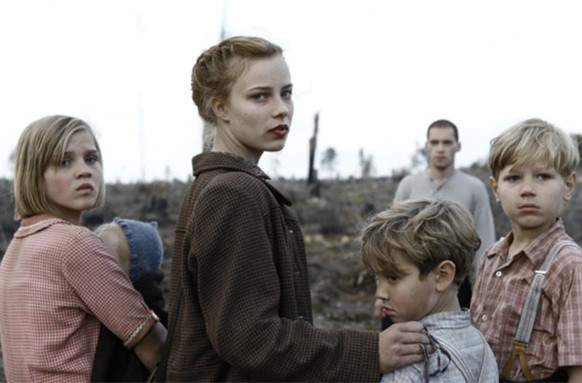
Cate Shortland is a writer and director from Australia. She studied directing at the Australian Film, Television and Radio School. Her first feature, Somersault (2004), premiered at the Cannes Film Festival. Lore is her second feature.
Shortland: A young woman in 1945 Germany, discovers that everything she thought to be true is a lie.
Shortland: After Somersault, I wanted to do something that was not only about relationships but about the larger world. This film involved a lot of research. Not only were we shooting in German language, with young kids and crossing the country but we were looking at what it means to be indoctrinated by fascism. So this film was far more challenging than my first.
Shortland: In 1971, a group of women created the Sydney Women’s Film Group and as Producers and Directors they went on to be involved in films such as Storm Boy, Picnic At Hanging Rock, My Brilliant Career, High Tide and The Piano. They also lobbied for a course for women to be included in the developing Australian Film and Television School and for there to be a Women’s Film Unit at the Australian Broadcasting Commission. So as a younger film maker I grew up believing that what I had to say was relevant and I didn’t question that I would be given equal access to all educational and funding opportunities in this country. I know I have been incredibly privileged.
The other aspect of making film accessible to women is government funding. Our film schools and drama schools were until very recently free. And even now they are incredibly affordable when compared with similar institutions internationally. We also have public film funding. All of this means that women have access to all aspects of film and TV production. Even so we still have far more male film makers than women and I see this as not reflecting the Industry but just Australia as a whole. I am constantly inspired by female directors such as Jane Campion, Kathryn Bigelow, Lynne Ramsay and Andrea Arnold, and as an audience member relish the opportunity to see the world for a fleeting moment through these womens’ eyes.
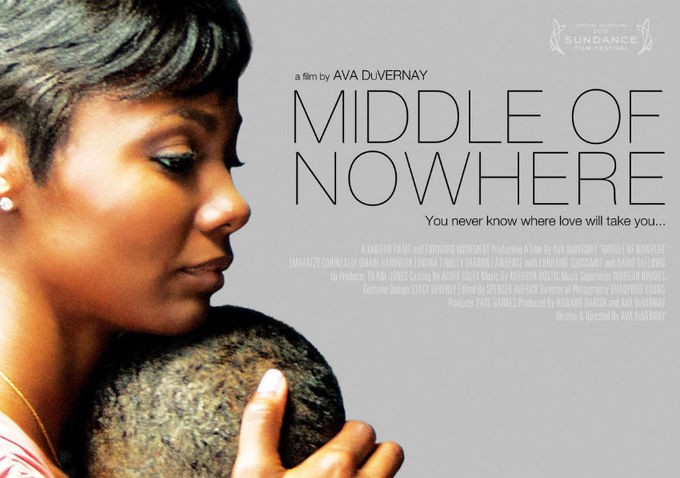
Ava DuVernay has previously directed the feature I Will Follow and the documentary This is the Life. She founded AFFRM the African American Film Releasing Movement which distributes African-American films. She won the Best Director award at Sundance for Middle of Nowhere.
DuVernay: Middle of Nowhere delves deeply into the inner life of a woman whose devotion to her incarcerated husband propels her in new, and often frightening, directions of self-discovery.
DuVernay: My previous narrative feature, I Will Follow, was about loss and identity. Middle of Nowhere tackles the same ideas, but through a different lens. Who are you when the person who defined you is gone? In I Will Follow, we explored this idea within a familial relationship, and through the death of a loved one. Middle of Nowhere delves deeper via a romantic relationship, and the incarceration of a loved one. I recognize the similarities as far as the thematic explorations. Both are about lost love, and where it leaves us. Aesthetically though, the films are quite different. More moolah has a lot to do with that. And just learning each day. You try to improve. I try anyway.
DuVernay: It’s a stew of stuff that’s in my head. A love story dealing with concerns of balance and identity. Set in the places seldom seen — the residential communities of the inner city, the often-ignored sorority of women-in-waiting. There’s a lot going on in the film. Some will see it all, some will see only the love story. I just want people to see it period. And whatever they get — that’s good with me.
DuVernay: For me, it’s all about making the second, third, fourth film. That’s where the numbers fall off like crazy for women filmmakers. Between the first and second film, it’s bananas. I’ve been fortunate enough to make a second narrative and have a few docs, and my plan for myself is just to KEEP GOING. That’s all I talk about to my fellow women filmmakers — WHAT’S NEXT? If you can’t do another feature right away, make that cool short. If you want to do a feature but can’t get the narrative financing together, make a killer documentary about something you love or something that concerns you. Look into TV, do some episodic. Videos. Commercials. Just make something. We’ve got to KEEP DIRECTING. If that’s what we say we do, then let’s do it. There’s a lot to be said for momentum. I see it as: this is my job. I go to work every day like everybody else. If we go to work EVERY DAY and we are actively making something, the numbers will rise. This premise is predicated on the assumption that you aren’t waiting on someone to give you permission to do anything, of course. This is more of an indie perspective. I know women in the studio world have a whole other set of concerns and these ideas don’t necessarily apply. I’m speaking about myself and women like me making independent work. We can talk about the difficulties, but that’s been established. We live it. We know. Now, let’s talk about the only thing that matters: what are you making now, and how much do you love it, and when can I see it.
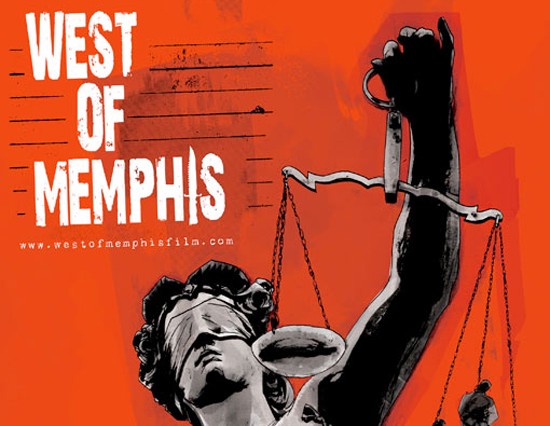
Amy Berg has previously directed and produced the documentary Deliver us from Evil. She is from Los Angeles.
Berg: West of Memphis not only explores the massive and ongoing fight it takes to overcome the systemic abuse of the justice system, but is leading the crusade for exoneration, eager to exert maximum pressure on the state of Arkansas to reopen an ineptly handled case.
Berg: West of Memphis was different for me because I was able to document live the transforming of history as it happened, and I had unprecedented access to a behind-the-scenes investigation as it was unfolding. Also, West of Memphis is so much more than a film, but an ongoing fight to get three wrongly accused men exonerated and put right this travesty of justice.
Berg: The love story between Lorri and Damien and the passion of Fran Walsh and Peter Jackson drew me to this story. Everyone’s undying commitment to truth and justice was something that was too palpable to not participate.
Berg: It is true that women directors are most definitely more prevalent at festivals and in the independent film world than in the studio system. I think the fact that studio feature budgets and indie budgets are so vastly disparate plays a great part in this. It is almost impossible to make films in the mid-range these days. It’s easier to get a $200 million dollar movie financed than one for $20 million and we have seen in these types of big budget films a world that has been historically dominated by male directors. Hopefully not for long. I think the next generation of females are going to be more drawn to these types of films as a result of such great filmmakers like Kathryn Bigelow, who is truly crossing the line. That said, I do really hope that the mid-range budgets come back to a more tangible place as I will continue to be drawn to stories that are told in a more raw and realistic style.
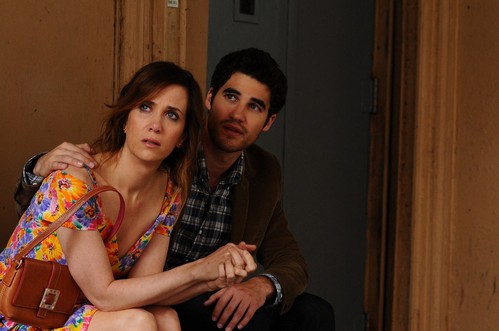
Shari Springer Berman has co-directed (with Robert Pulcini) American Splendor, The Nanny Diaries and The Extra Man.
Springer Berman: Imogene is one woman’s wild journey to self-acceptance via the Jersey Shore — all the while confronting massive mother issues, a dead father’s possible resurrection, a Backstreet Boy impersonator, an alleged time-traveling CIA Agent, hermit crabs and bad fashions from the 90's.
Springer Berman: I don’t really think about it that way. Every movie is unique and I approach each one of them like a baby or a love affair, depending on my mindset at the time. Certainly, the development process for Imogene was a bit different than our previous films. We worked closely with a writer (Michelle Morgan) and Kristen for nearly two years before going into production, and we sort of became our own dysfunctional family. We were really all in it together, through some crazy ups and downs that actually rival Imogene’s trials and tribulations in the movie.
Our previous film, Cinema Verite, was a drama based on both a groundbreaking documentary and a culturally significant true story, so the character-driven comedy of Imogene was immensely liberating. There were no legal issues or real people to properly represent. It was more about fun, feeling, humor and heartache. We had a great time despite our limited budget, short prep time, horrible mosquito bites and natural disasters including a hurricane that caused us to be evacuated from our main set in the Rockaways, and a freak New York earthquake that seriously rattled our hero house.
Springer Berman: We’re obviously attracted to stories about unconventional people, and Imogene has its fair share. But the main character in this story actually craves normalcy. She rejects the “funky” Jersey Shore universe of her mother, desperately trying to fit into a more mainstream society world. This is an impulse I could relate to, although I happily got over it long ago. So I guess I found something personal in Imogene’s journey.
We also love comedy tinged with real emotion, a mixed tone that is challenging but can be very rewarding. And naturally there was the Kristen factor. Not to toot our own horns, but we were huge fans long before Bridesmaids. When we read an early draft, we knew this was an ideal role for Kristen to demonstrate her comedic range along with her impressive acting chops, and it was exciting to be a part of that process.
Springer Berman: This is an issue I’ve been thinking about a lot lately. Hollywood is set up in a certain way that is very male. There are many brilliant first films and shorts from female directors, but it seems difficult for these women to take the next step and make follow-up films. Sometimes I wonder if this is due in part to a woman’s nature to nurture a project –to take her time with it — an instinct which works against you in the film world. One must strike while they are hot because industry types have short attention spans. As a woman, my instinct is to take a long time between films but I have a more goal-oriented male partner who encourages me to keep moving.
Also, I think there is a misguided belief in the studio system that female-centric material isn’t commercial. We encountered our share of this prejudice when we were trying to get Imogene financed. Up until opening weekend, there was so much pessimism about Bridesmaids. We were told point blank that female comedies don’t work, or that Kristen couldn’t carry a movie, blah blah blah. It’s amusing to hear those same people now tell us how lucky we were to work with Kristen right after Bridesmaids.
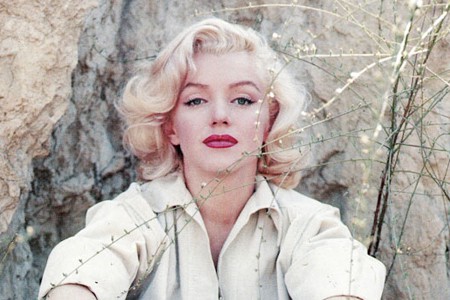
Liz Garbus co-directed the documentary The Farm: Angola, US which won the Grand Jury prize at Sundance. She has directed many documentaries including The Execution of Wanda Jean, The Nazi Officer’s Wife, Girlhood and Bobby Fischer Against the World.
Garbus: Recently unearthed documents provide insight into one of the most compelling and misunderstood figures of the 20th Century, Marilyn Monroe. A chorus of extraordinary actors give voice to her words, evoking different aspects of her, to create a mosaic of her inner world.
Garbus: What is different? On the surface, a lot. I worked with actors to give voice to not only Marilyn but those who helped create her mythology, from Norman Mailer to Elia Kazan to Truman Capote. At the heart of it- it’s very in line with films I have made in the past. Like my previous film, Bobby Fischer Against the World, it provides fresh understanding of a cultural figure you thought you knew. And it’s a film about being human, our best and worst sides, just like The Farm.
Garbus: Demand change! For documentary filmmakers we have been lucky — there have been some hugely important figures who have nurtured woman filmmakers’ careers. Sheila Nevins at HBO has been an unequaled force in this respect. And- some nepotism here — my husband Dan Cogan is now starting a film fund for women feature directors. We need more trailblazers like them to change the system and create more financing opportunities for women directors- there’s no shortage of ideas and talent!
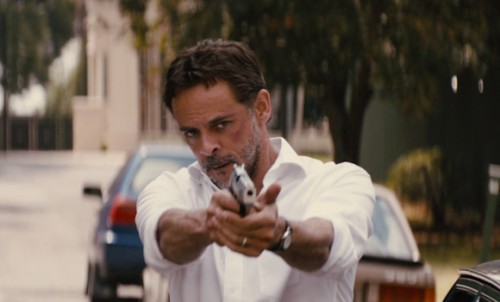
Ruba Nadda has directed many award winning short films and has written and directed the features I Always Come to You, Unsettled, Sabah and Cairo Time.
Nadda: Inescapable is a political thriller about a father’s desperate search for his daughter, who suddenly goes missing in his native Syria.
Nadda: It’s a male lead. My last 2 features have been heroines but this time, I based the lead on my father but surrounded my hero with very strong women. Also, the storyline feels a little more masculine, a little angrier. But my secret and what drives me is still the same — I get obsessed with a character, they refuse to leave me alone and I love ordinary characters caught up in extraordinary circumstances. All my films have this in common.
Nadda: My parents are originally Syrian and I was born in Canada. When I was 12 to 16, I lived in Damascus, they wanted to go back home. Damascus and its politics were so alien to me and I had to grow up fast. The police state, the dictatorship, the struggles, the paranoia — I have never been able to shake all of that and I wanted to set a story in this city, in this world I knew so well. As a filmmaker, I travel a lot, and while traveling alone for the first time in my life, with my first feature, Sabah, back in 2005, my father would always warn me, be careful, don’t disappear. Don’t make me come after you.
Nadda: It’s terrible isn’t it? I struggle with this too — but I feel my female-ism is just the icing on the cake — my name is different, I’m part Arab — I’m Canadian — so being female is just extra. I don’t know why it’s so difficult for women to rise — I come in on budget, the crew’s love working with me, I’m decisive, I don’t go over schedule — the reality in this business is a filmmaker needs a break. They need one person to hire them and take that risk. I’ve been making movie since I was 24 and it’s still very difficult to get a job as a director in television even though my producer — one of the good guys by the way — trusted me to take our limited resources and even more limited budgets to Cairo — a city where things could have very easily gone wrong. Nothing went wrong. Still difficult to have someone give me a break on a bigger budget — so basically the way I go around this problem is I write my own films. If I want to direct a sports movie or a science fiction movie — I gotta write it. It’s tough — but also, at the end of the day, I could have it worse. I could still be living in Damascus where my fate would have been far worse.
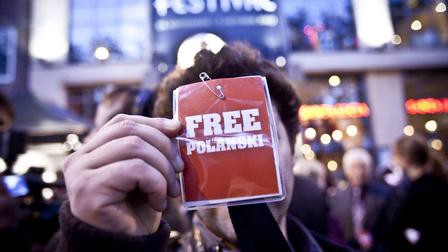
Marina Zenovich began her career as an actress before she transitioned into making documentaries. She originally directed television documentaries and her first feature documentary was Roman Polanski: Wanted and Desired, which won Emmy awards for both writing and directing.
Zenovich: The film is about how Roman Polanski’s weekend jaunt to Switzerland in September 2009 to accept a Lifetime Achievement Award at the Zurich Film Festival turned into a 10 month imprisonment and my trying to figure out why.
Zenovich: The story was unfolding before my eyes. We didn’t know how it was going to end. We didn’t know what the film would be. It was a breaking news story but it went on for almost a year.
Zenovich: Polanski’s lawyers used my film Roman Polanski: Wanted and Desired as evidence to launch a fresh appeal in Polanski’s case. I started filming a short film in January of 2009 to see how the story would unfold. I had a scheduled interview with Polanski in November of 2009. But in September (nine months after I started filming) Polanski got arrested. Suddenly the film became a much bigger story and I felt I had to follow it.
Zenovich: Making a film is difficult no matter who you are. Although I wish there were more opportunities for women directors — and a lot of women directors are getting together to try to make that happen — all one can do is keep calm and carry on.
Mira Nair’s debut film Salaam Bombay! (1988) won the Golden Camera and audience awards at Cannes. She has since gone on to direct many award winning films including Monsoon Wedding, Vanity Fair and The Namesake.
Nair: Our movie follows the story of a young Pakistani man, chasing corporate success on Wall Street, who ultimately finds himself embroiled in a conflict between his American Dream, a hostage crisis, and the enduring call of his family’s homeland.
Nair: This is an international political thriller.
Nair: As a child growing up in modern India, there was a wall between India and Pakistan that could never be crossed. It was 7 years ago, when I was invited to show my films in Pakistan, that I had the chance to go to the land where my father spent his youth, before the partition of India and Pakistan. To discover the country, the culture, the people — it all seemed terribly familiar. I was immediately inspired to make a contemporary film about Pakistan, especially in this day and age when the perceived schism between Islamists and the Western World becomes more pronounced each day.
Nair: I grew up in an India where I saw women in all positions of public power, so I believed anything was possible. Paradoxically in the west, where female leadership is not as routine or very visible, there needs to be more confidence instilled in young women to believe that our visions must be seen, our voices heard. I’m a great believer in female solidarity — it’s no surprise that women are more likely to green light women’s pictures and have more confidence in women directors. In fact, the major source of support for The Reluctant Fundamentalist, came from Sheikha Al Mayassa Bint Hamad Bin Khalifa Al-Thani who chairs the Qatar Museums Authority and the Doha Film Institute — two cultural bodies established to create cultural bridges and authentic narratives.
